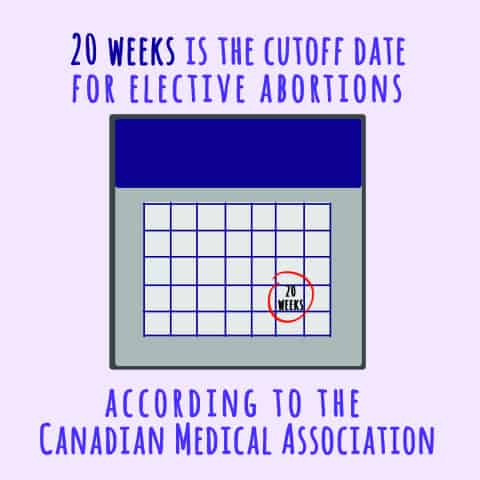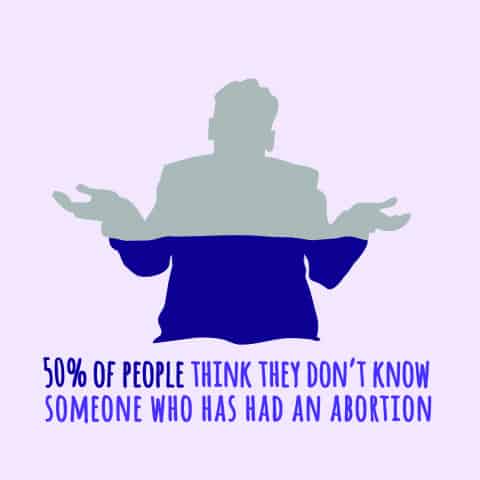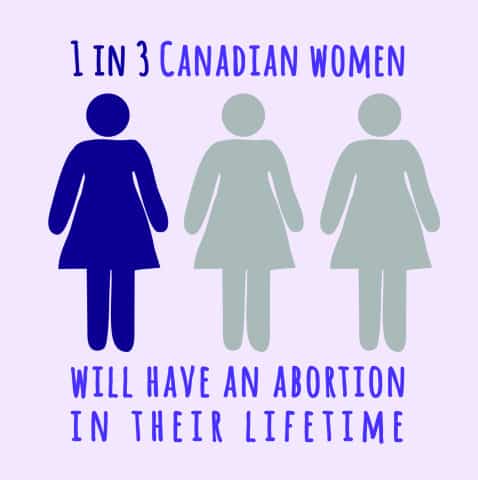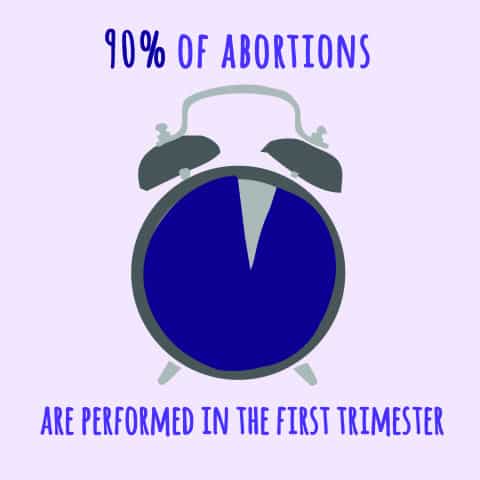MONICA GORDON
The stigmatization of women who abort a pregnancy is both unfair and widespread. In Canada today, women are forced into silence when they choose abortion, as a direct result of the stigma.
Most of us are familiar with the expectations and stereotypes surrounding women who’ve had abortions. They’re expected to be apologetic, contrite and embarrassed about their choice. At best, they’re stereotyped as irresponsible and at worst, they’re portrayed as heartless sluts who just want consequence-free sex. Women who have an abortion are placed in a deviant outgroup and face potential ostracism should others find out what they have done.
The best way to fully understand abortion stigma is to look at it through the eyes of a woman who’s experienced it.
A woman, refered to as Sarah to protect her privacy, had an abortion in 2006. After an incident with a broken condom, she found herself pregnant and went to see her doctor to schedule an abortion. At the time, Sarah was recently divorced and found the choice to be an obvious one.
to schedule an abortion. At the time, Sarah was recently divorced and found the choice to be an obvious one.
“I didn’t have the means to raise nor provide for a fourth child as a single mother,” Sarah said.
Almost immediately after the procedure, Sarah found out just what it meant to be a woman who has had an abortion. She asked a friend who identified as pro-choice to accompany her to the hospital for support. After they left the hospital, Sarah was shocked and hurt when her friend started casually disparaging women who were “stupid enough” to have unplanned pregnancies and made rude comments about women who got abortions.
“She implied that abortion was something that ‘good girls’ from respectable families just didn’t do,” Sarah said.
Sarah had encountered this attitude before in her social group.
“Abortion was treated as if it were a dirty word,” Sarah said. “If it came up, the conversation was abruptly redirected. There is no doubt in my mind that if my abortion became public knowledge in my community, I would be avoided and gossiped about.”
Sarah therefore kept her abortion a secret. While encountering judgmental attitudes makes her feel isolated and depressed, Sarah stands by her decision.
“I don’t regret having an abortion, it was definitely the right choice for me,” Sarah said. “It seems unfair that I have to conceal this fact to avoid being judged as a bad person.”
Remarkably, Sarah emphasized that she’s never felt guilty about the abortion itself — the only negative feelings she experienced were a result of stigmatization.
Abortion stigma manifests itself in women as anxiety, isolation and a fear of discovery. On a community level, reactions include shunning and condemnation, while on a cultural level harmful stereotypes are created about these women. Abortion stigma is everywhere and it has concrete harms for Canadian women.
If we want to help these women, we first need to understand where abortion stigma comes from.
In the article “Conceptualizing Abortion Stigma” published by the academic journal Culture, Health & Sexuality, researchers from the University of Amsterdam in the Netherlands outlined several ways that choosing to have an abortion challenges widely-held assumptions about the essence of femininity.
Abortion stigma is believed to originate in the rejection of what is described as “ideal womanhood.” According to traditional gender roles, the ideal woman is nurturing, sexually chaste and obedient. She is often defined by motherhood, which is portrayed as the ultimate achievement for women. By having an abortion, a woman threatens these beliefs by saying that not only is motherhood less important than other aspects of her life, but that she will only become a mother if it is her choice.
Having an abortion also suggests that a woman had sex that was intended to be for pleasure, not procreation. Even in Canada, negative opinions about women having non-marital, non-procreative sex are prevalent, as demonstrated by the continued existence of “slut” in our vocabulary.
By choosing an abortion, a woman is unequivocally saying that her opinion about being pregnant is not only relevant, but instead the most important factor at play. The woman who has an abortion undermines the ideal of the nurturing and passive woman by not meekly accepting her unwanted pregnancy.
A lot of these beliefs are blatantly sexist. It’s 2015 — most Canadians will tell you that they don’t think a woman must be maternal, unassertive and sexually chaste to be a good person. Nevertheless, sexism still exists in Canada and abortion stigma thrives.
While abortion stigma may sprout out of sexist beliefs, there’s more to it than that. Many actions which defy tradition — like a woman keeping her maiden name despite marriage — aren’t stigmatized on nearly the same level as abortion. So why is abortion stigma so pervasive?
There has been an anti-abortion movement in Canada for over 30 years now. Abortion stigma couldn’t have grown nearly this large without a deliberate effort to cultivate it and nurturing stigma is a process that the anti-abortion movement has perfected.
There are three main methods used to grow this stigma. The simplest of these is associating abortion with things seen as scary, namely the many dubious claims of supposed side-effects of abortion.
The list of myths surrounding abortion is ridiculously long. For the sake of brevity, only some of the most egregious will be discussed here. The worst offender is the myth that abortion increases a woman’s risk for breast cancer. Despite the fact that the Canadian Cancer Society, American Cancer Society and National Cancer Institute all maintain that abortion and breast cancer aren’t connected, the anti-abortion movement still insists they are, often citing questionable sources.
An example of this is the book Women’s Health After Abortion, published by the deVeber Institute for Bioethics and Social Research. Despite the fact that the book was authored by a history professor and a child psychology professor and published by an explicitly anti-abortion organization, groups such as Campaign Life Coalition of Canada (CLCC) have treated this book as an authoritative source when claiming abortion causes breast cancer.
Another myth is that abortion is psychologically damaging to women. For example, on their Facebook page in January, the Saskatchewan Pro-Life Association described abortion as something that kills a woman “emotionally and spiritually,” and CLCC has claimed that abortion causes post-traumatic stress disorder. While these certainly try to make abortion sound scary, the American Psychological Association has repeatedly emphasized that severe negative reactions after abortion are rare and abortion doesn’t pose a mental-health risk.
In some cases, groups don ’t even bother to find an angle — they simply portray abortion as wildly dangerous and “never safe.” To hear the anti-abortion movement tell it, you would think abortion was unique amongst medical procedures for having typical surgical risks.
’t even bother to find an angle — they simply portray abortion as wildly dangerous and “never safe.” To hear the anti-abortion movement tell it, you would think abortion was unique amongst medical procedures for having typical surgical risks.
Besides this, characteristics of an abortion that aren’t dangerous are portrayed as such. A fairly common refrain is that abortion is a “blind” procedure. While this is true, ultrasounds now allow doctors to see what they’re doing. Never mind that many blind procedures, such as uterine fibroid removal, rarely result in complications.
Besides increasing stigma, this misinformation seems to serve another purpose — it allows anti-abortion groups to position themselves as protecting women from abortion. Apparently we’re not supposed to notice that the bogeyman they’re trying to defend women from is one they made up.
Misinformation is only the beginning. Most of the stigmatization is much less overt — as demonstrated by a particular trend in anti-abortion images and literature. Fetuses are described in very emotional language and sometimes there are images in which the fetus looks suspiciously mature for that point in gestation. While it isn’t surprising that a movement that worships the fetus would portray it in a warm light, this isn’t an accident. The second method, romanticizing the fetus, is very intentional.
The Canadian Centre for Bio-Ethical Reform’s initiative, “End the Killing,” explicitly instructs anti-abortion activists to emphasize “the humanity and personhood of the pre-born and the inhumanity of abortion” through conversation and graphic images. At the 2014 symposium held by the National Campus Life Network, student activists were similarly encouraged to “humanize the pre-born child and dehumanize abortion.”
So, what does that look like when carried out? One tactic is to use language to romanticize the fetus. Despite “fetus,” “embryo,” and “zygote” being medically accurate terms, you will almost never hear an anti-abortion activist use them. Instead, you see the creation of names such as “pre-born child,” a term used exclusively by the anti-abortion movement in hopes of generating emotional attachment to the fetus.
There are anti-abortion groups that will try to humanize a first-trimester fetus by ascribing it characteristics of a third-trimester fetus, such as the ability to feel pain. In other cases, trivial milestones, such as a fetus growing fingernails at 10 weeks gestation, are treated as the epitome of that which makes us human.
Images are also used to humanize the fetus, often with an ironic side-effect. These particular images almost always show the fetus either in-utero or through the transparent abdomen of the woman. In the images, the woman is either completely erased from the picture or reduced to her reproductive organs. The cost of humanizing the fetus is the dehumanization of the pregnant woman.
At the same time, abortion is described in extremely barbaric language. An example of this is the Saskatchewan Pro-life Association referring to abortion as a procedure that “dismembers, decapitates, and disembowels pre-born babies” in January on Facebook. Portraying abortion as barbaric is also done using pictures. The anti-abortion movement is notorious for using gory images of allegedly aborted fetuses. “Allegedly,” simply because accusations have been made in the past that images are edited to look more disturbing and that some photos are of miscarried fetuses, not aborted ones.
All of this positioning increases stigma in a very simple way: by romanticizing the fetus and casting abortion as a depraved act. The woman who gets an abortion goes from being seen as a deviant to a murderer.
Unsurprisingly, calling women murderers hasn’t been great for publicity. In the last few years the movement has shifted away from the stereotype of the angry clinic protester. The final and most deceptive method of perpetuating stigma is the movement’s new “pro-woman” narrative.
In the first part of this narrative, women who get abortions are simply good girls who were tricked by our “culture of death” into making a horrible mistake. Emphasis is placed on how confused, pitiful and witless these women are. The narrative portrays them as passive figures who were acted on by an evil force, which strips them of the agency they asserted by getting an abortion in the first place.
This new narrative also extends to motherhood. Simon Fraser University Lifeline, an affiliate of the National Campus Life Network, has a banner on their campus which features a radiant mother looking down at a smiling baby next to the statement, “You’ll never regret loving this much.” Groups like Life Canada emphasize the “beauty of motherhood.” Others even go so far as to suggest that an unplanned child could never be a “burden” or an “inconvenience,” but only ever a wonderful gift.
The “pro-woman” narrative also says some telling things about femininity. The CLCC provides their reasoning behind abortion causing post-traumatic stress: a woman’s “very femininity is connected to, and defined by, the potential for motherhood. At some level, the destruction of a pregnancy is felt as a deprivation; an act of violence against herself.”
According to the CLCC, PTSD is why abortion is a “traumatic experience” for most women. Another anti-abortion organization, Silent No More, appears to share this view and devotes itself to presenting emotional devastation as the typical reaction of women who get abortions.
If this narrative tells us anything, it’s that the anti-abortion movement is obsessed with ideal womanhood. They see motherhood as so wonderful that no woman in her right mind could reject it. Furthermore, because a woman is defined by her ability to have children, to deny herself a pregnancy must lead to an emotional breakdown. The movement therefore sees itself as “pro-woman” because the woman who gets an abortion is seen as a victim in need of protection.
mind could reject it. Furthermore, because a woman is defined by her ability to have children, to deny herself a pregnancy must lead to an emotional breakdown. The movement therefore sees itself as “pro-woman” because the woman who gets an abortion is seen as a victim in need of protection.
In this line of thinking, the idea of a woman who’s okay with her abortion, who willingly rejects motherhood and who takes ownership of her decision is so counterintuitive that it’s completely unimaginable. Through exclusion, the narrative casts the woman who isn’t emotionally devastated as a dysfunctional or defective woman.
The narrative gets even more problematic though. On the Canadian Centre for Bio-Ethical Reform’s website, there is an open letter written by one of the co-founders, Stephanie Gray, defending the use of graphic images by the anti-abortion movement. In this letter, Gray, who’s been described as “Canada’s premier pro-life apologist,” says that “bad feelings follow from bad behavior for those with functioning consciences.”
In the anti-abortion narrative, this has serious implications for the woman who isn’t wracked by guilt for having an abortion. Not only is she a defective woman and a murderer, she’s now a sociopath without a conscience. Small wonder so many women choose to keep their abortions a secret.
It should be stressed that this form of stigmatization doesn’t necessarily result from contempt for the unrepentant woman. It seems that lately we’re all prepared to assume malicious intent on behalf of anti-abortion groups.
While some do abhor women who get abortions, we need to remember that many activists honestly see themselves as “pro-woman.” It’s shortcomings in their reasoning — their inability to conceive of a woman who deviates from traditional femininity — that lead them to perpetuate the stigma, not intentional cruelty. Obviously, their good intentions don’t mitigate the damage they’re doing, but as a good friend once told me, “never assume malice when stupidity will suffice.”
As far as restrictions in Canada go, there isn’t a lot standing between abortion and the woman who wants one. Given this, for those who see abortion as morally equivalent to murder, stigmatization is a course of action that logically follows. This by no means makes it ethical, or even particularly redeemable, but it does make things a little easier to understand.
However, while the stigma is grown and cared for by the anti-abortion movement, they don’t have a monopoly on it. As intended, the stigma has bled over into mainstream narratives surrounding abortion. Even those who don’t identify as anti-abortion sometimes hold stigmatizing beliefs. Take the common pro-choice defence that abortion is a very difficult decision for a woman to make. Where does this leave women like Sarah, who found abortion to be the obvious choice?
 Abortion stigma is often more immediate than that. I’ve witnessed students on this campus drop their voices to discuss an abortion and I’ve heard “she’s had an abortion” used as conclusive proof that another woman isn’t someone you’d want to associate with.
Abortion stigma is often more immediate than that. I’ve witnessed students on this campus drop their voices to discuss an abortion and I’ve heard “she’s had an abortion” used as conclusive proof that another woman isn’t someone you’d want to associate with.
What we have to ask ourselves is what are these narratives doing to women? What happens when we let people try to manipulate others into seeing something they did as morally equivalent to murder? What happens when we’re so apathetic to the plight of these women that silence and isolation become their safest options? Are they really so worthless to us that we’re going to allow them to be sacrificed in the name of the “pre-born child?”
Whether or not access to abortion is something you support, you owe it to these women to critically examine any biases you might have against them. It isn’t fair of us to make the price of an abortion condemnation and isolation. That any woman must resign herself to this is no longer acceptable.
According to research done by Dr. Wendy Norman, a professor at the University of British Columbia, one in three Canadian women will have an abortion in her lifetime. These women are our sisters, our mothers and our friends. They make the dean’s list, volunteer at homeless shelters and sing in the shower. The woman who has an abortion is a complex human being, not some two-dimensional stereotype. All she wanted was a better life for herself — who are we to hold that against her?
Whoever she is, whatever her reasons are, she is entitled to a safe procedure and she deserves better than this.
Leave a Reply